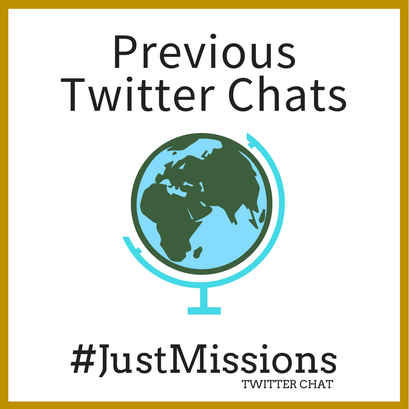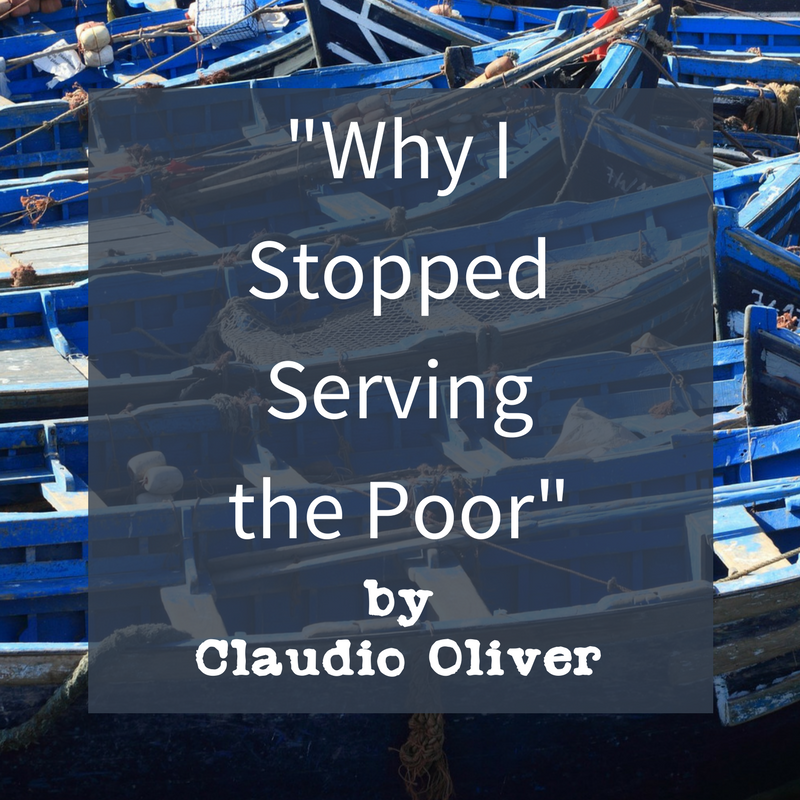 Ryan’s Story Ryan Kuja is currently living in Michigan but he and his wife, Katie, are about to make a move to Colombia, South America, to work with Word Made Flesh. Ryan is a spiritual director, and he is currently back in school for his second masters degree, this time around in Counseling & Psychology. His first was in Theology & Culture at Seattle School of Theology and Psychology. Ryan had a heart for missions at a very young age. “I remember watching cartoons on Saturday morning and these infomercials would come on for Christian’s Children Fund. I would look at these images of children living in poverty, and from the first time seeing those images I started to sense there is something wrong about this. I remember thinking, ‘I want to do something about this when I grow up. Even if I give a $1 a day to support kids.’ Fast forward when I was 17, I had lots of psychological issues and emotional pain. I really prayed for the first time when I was 17 and really reached out and had something of a conversion experience.” Ryan grew up as a cultural Catholic attending mass on Christmas and Easter. “This specific moment in my bedroom, I sensed a divine presence and this potent, powerful experience of deep, deep love and acceptance. I remember falling asleep in this deep, deep peace. Around that same time, in the days and weeks following that experience, it brought back, it reawakened that early desire of my 7-year-old self to be of service.” That, he said, was his entryway into a path of living missionally, then as a missionary living cross-culturally, and serving the poor. It has taken him to several countries over the past 14 years. “In Cape Town, South Africa, I had no theological training at that point. I was there to study, but this draw to serve the marginalized was in me. I basically just accompanied my homeless neighbors. It was really an incarnational stance toward mission even though I had never heard this terminology. We would hang out and talk and share meals, listen to their stories and bring them to appointments.” He served as a humanitarian aid worker in South Sudan in 2006. “That was a totally different expression of mission – urban injustice in Cape Town vs. being in South Sudan being out in the bush in a tiny village with no electricity and no running water living in tents.” There was a long-standing civil war that ended not long before he arrived. “Everyone carried an AK47. There were no creature comforts.” He also spent some time in India as a volunteer with the missionaries of charity at Mother Teresa’s Home for the Sick. He lived in the UK and in Mozambique. “I’ve had a lot of sharply contrasting different experiences, some were more conducive to growth and seeing the world differently and some were more of seeing me like I was going to rescue people.” Ryan has a book on missions that is set to be published in the spring of 2018. While the topic is clearly his passion, he believes the narrative around missions needs to change, or rather, that people need to awaken to the myths that drive the current false narratives of mission. “Everything I have critiqued I have participated in. So I critique from within, and of love for mission and I certainly begin with a deep yes for mission. And a deep yes to the missio Dei and God’s active participation in redeeming the world and bringing about shalom.” Ryan said that he loves the pillars that underlie mission: theology, psychology and spirituality, and culture. “I love the theological piece. When mission invites our limited ideas and assumptions and attitudes to be disrupted, that in turn can allows us to honor the integrity of the poor better.” “Mission is the mother of theology,” said Martin Kahler, and Ryan agrees. “Our experiences will shape our theologies rather than the other way around. If our theologies aren’t that good, our practices won’t be that good. We have to look at the deeper theologies that undergird everything,” Ryan said. Good Intentions are Not Enough “Most of us missionaries have good intentions, and I’m not calling that into question at all,” Ryan said. “Yet when the theology that underlies what we are doing is not as robust as it could be, or when it gives rise to expressions that shouldn’t even be called mission because it doesn’t align with Missio Dei it should be bothersome. Again, I’ve seen that in my own life. We have so many instances of well-meaning and well-intended Christians armed with good intentions, but because of what is underlying the guiding narratives, people end up engaging in ways that doesn’t carry the scent of the mission of God, it carries more of the scent of the scent of the ego. McMission is a culturally construed idea. It’s easy to inadvertently perpetuate dependency or cycles of shame. “We tend not to understand how shame and poverty are connected. We may inadvertently perpetuate shame: ‘white is better’ or ‘west is better’ or ‘we have what they need’. The kingdom of God isn’t expressed in these myths. Nobody is transformed: not the people going, not the people being served. We tend to feel good about ourselves. We feel like we are doing good and perhaps we have done some good acts of charity, but it doesn’t necessarily fit into the biblical framework of the mission of God into the world. It doesn’t change how we see ourselves, doesn’t change our theology or our spiritual formation, and generally it doesn’t help catalyze more justice for the poor. “I see myth simply as stories/narratives that guide us in our daily lives whether in mission or in the work we do. Our identities tend to be linked to these narratives and help us understand who we are, why we are here. They also give a sense of cohesion. There is sort of this aliveness to myth. Myths are sort of alive, unconsciously and consciously, also alive in the collective in society. They are collective and individual. “Myth seems to be a more powerful shaper—it shapes our reality more than history. We tend to see history as the events in the past, but we also look at history through the lens of myth. Classic example: Columbus. We are taught in school that he ‘discovers’ the new world and brings civilization to the Caribbean and it spreads to Europeans to settle this so-called new world. There’s truth in that, a kernel of truth and a kernel of that is history, but the rest of it is mythological because historical fact tells a more accurate story: the extermination of native people that pave the way in North and South America. He was acting on behalf of the crown of Spain, for the Empire. He was spreading the Empire through death. We would name it/label it as evil. It has this quality of the satanic: of such deep darkness. But we don’t talk about any of that. Generally, we celebrate Columbus day. “That’s how history is revised to fit into our mythology, which gives rise to the way we see our country as the land of the free and the home of the brave. Everyone has the right to the pursuit of life, liberty, and happiness. Everyone is created equal. We know mythology much better than we know history. It’s a different type of knowing. It’s back to that aliveness, these myths animate us. How we see the world and our role in it. Whereas we see history like it’s not alive anymore, they are dry facts. “These myths live in us and we live according to these myths. “If Christians were going to live according to history, society would function a lot differently we’d be naming things like mass incarceration as modern-day slavery. Things would look a lot different but we live according to the myth.” Ryan lived in the Pacific Northwest for five years. He said there is a movement there to rename Columbus Day to Indigenous People’s Day. “Let’s honor indigenous people who have been historically oppressed. That is a big and needed shift,” he said. But then he talked about how there was pushback from a Italian group who wanted to maintain Columbus Day, stating it is part of their heritage. “Pushing back the myths threatens a whole worldview,” he said. Myths that Drive Missions Ryan said there are certain myths that drive missions. “These are like blueprints that animate us. The myths that drive us forward as missionaries is that we have what they need. We, the West, the materially wealthy, we have what other people need. To a large degree people in the majority world are passively awaiting rescue from us, from the West. This is subtle. It isn’t overt. Sometimes it is, but mostly covert. Another myth: Our expressions of the gospel are the correct ones. So indigenous cultural expressions of the gospel are not necessarily right. It’s our way or the highway. Our way of reading the Bible or doing church is the right, correct way. In general there is a sense of paternalism. There’s a sense that we are the ones that need to help the other. Sometimes these sort of myths, we don’t really see them as much as we see through them. You don’t see the lens itself, you see through it. Everything is colored in a certain way according to that lens. “We see ourselves as the Whole [con]descending to help the Broken. That is the guiding narrative, and that drives what we do because it’s forming how we see. In reality, we are broken, we are wounded. But that’s not part of our myth in mission. In fact, I think if we did start to know, own, and face that there is a mutual brokenness, that myth would start to crumble. What would happen if we as Western Christians could see ourselves as needing saving as much as anyone else. That shakes things up. Another layer, even further, is that mission can also medicate that pain that we haven’t dealt with. It can kind of act as a tactic to keep our pain unconscious. ‘Look I’m serving God, helping people in need.’ Mission itself can be an addiction in that sense because it serves its function of keeping us unaware of our own wounds, stories, shadows, and things we haven’t dealt with in our own lives. “I was compelled by that myth for many years until it collapsed through deep, deep pain. Part of that being in Sudan, the pain that I was in because I hadn’t dealt with my own story, my own woundedness, brokenness, and PTSD. It wasn’t until the whole collapse came. It took a while, it seemed every time I was in a new place engaged in mission, more collapse would come until I learned to wrestle with my own story. Preventing the Perpetuation of Myths in Mission“Myth has to be disrupted in some way. The spiritual formation piece was really important for me … ‘coming to see with new eyes’. Anything that invites that awareness of the myth, and having these conversations about what’s really going on below the surface,” Ryan said. He commends books such as When Helping Hurts, Walking With the Poor, and Serving with Eyes Wide Open. Yet he feels we need to excavate more. “Let’s take the book When Helping Hurts. Why do we need that book in the first places? We do need it, but there is a deeper conversation that needs to be taking place parallel to that that goes deeper that is less practical. As Americans, we are super practical people. We are trained to think like that. That’s phenomenal, it’s a gift of the Western brain, Western neurology. But there’s a reason why that book sold a bunch of copies—it’s really good stuff—but if we only look at that, but we don’t get to what’s driving expressions of mission like why does helping hurt below the surface? What about attitudes, assumptions, beliefs, images that were fed? That’s all related to the myth. The practicalities in learning how to do things differently – looking at understanding the narrative. I think Livermore talks about guiding narratives in Mission. We have to interrogate those in order to honor the dignity of the poor better.” Ryan liked Faiith Brooks’ concept of asking people if they would still go on missions trips if they couldn’t take their cameras. Even in the photos we take, we want photos of ourselves with our quote unquote new friends to serve us. We want to be the center of attention, that’s the western cultural value of achieving success. We’d rather go paint the house, build the church, we want to be the center. “We persist in showing the same narratives because we are captive to them, yet they are not gospel narratives,” he said. There needs to be a decentering process that takes place. “… A decentering of our practices. Where we are not the center, where we can stay on the periphery. There also needs to be a decentering as in destabilizing the narrative that is so well worn in how we think. How we see the world is laid down in our brains and it takes being exposed to something more than once or having some sort of disruptive experience can shift us. I don’t agree with this whole idea that mission is good for our teenage kids because it exposes them to poverty and disrupt them,” he said. He said that can be a dangerous line “because we cannot use the poor as objects for us to change or for us to see the world differently. It’s easy to talk about the benefit to us rather than the cost to the poor.” For Current Missions Leaders “I commend people doing this work and being in this space. I think it’s great the work that they are doing in their hearts and their intentions. It feels like there is a ground swell of shifts in the way we think about mission and do mission, but we need to go beyond language and go beyond buzz words: partnerships, hand up not hand out. I think those are good starting places, but I think if we are going to embody the gospel in beautiful ways, the shifts in language aren’t enough. We’re due for a complete remodel.” Ryan said he would ask missions leaders, “Are you willing to do the work of confrontation? Are you willing to confront how we see the poor, your own brokenness, how we do this work with more integrity, where we have biases? Are you willing to confront what’s guiding us as potentially something other than the gospel? Can we even confess the scent of/the power that we have when we cross these cultural boundaries? It feels good. We like it. We’re kind of a nobody here, and all of the sudden people are bowing in worship of us there. Can we confess that? We need to do the hard work and we need to be willing to face discomfort, give up something, and critique how we’ve been doing what we’ve doing for the good and for the dignity of the other, for our own dignity, and getting closer to the gospel.” Ryan’s Upcoming Book Ryan’s book is scheduled to be published in the spring of 2018 by Cascade Books. It discusses the deeper conversation of missions specifically in regards to three narratives: 1) individuals in mission, 2) places in mission, and 3) the gospel in mission. Ryan said that the faith-based sojourner has a personal narrative that is told in who they are spiritually, psychologically, etc. The place that sojourner travels to also has its own narrative of its culture, history, people, myths, etc. Then there is the gospel narrative and how the individual perceives that narrative. “There’s a brokenness, each story needs redemption How we see our place in God’s story. It’s not hard to see that … we need redemption. We all struggle with something: addiction, drama, pain, woundedness. We are all broken and the places we are entering there is brokenness, there is economic poverty, illness, disease, etc. And I don’t think any cultural expression is perfect. All human cultures are broken in different ways. All need areas of repentance. We tend to focus on changing the ‘other’ to fit our image,” he said. He said it’s important to cultivate a true mutuality not a “thin mutuality” that everyone seems to be on board with. “I think it’s easy to rearrange the furniture in the room, when the room actually needs to be gutted, floors torn up, dry wall torn out. Just rearranging isn’t enough. If we don’t look at these narratives at a deeper level, it will always be about interior design rather than remodeling. It will always be fundamentally the same. It takes a lot more work to remodel than to redecorate. It’s messy literally, it’s hard work,” he said. His book will also discuss the sins of mission, memory, myth and calling. For more about Ryan, visit his website www.ryankuja.com A few great articles from him in relation to myth and missions: https://goodmenproject.com/featured-content/is-the-usa-on-mcmission-wcz/ https://goodmenproject.com/featured-content/quitting-poverty-porn-jvinc/ http://www.missioalliance.org/idolatry-white-mythology/
0 Comments
Leave a Reply. |
Gena's
|

 RSS Feed
RSS Feed

